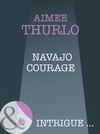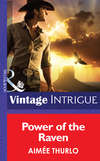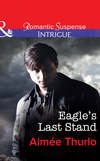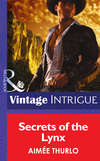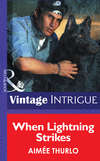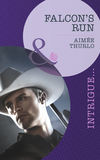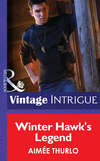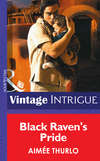Kitabı oku: «Navajo Courage», sayfa 3
Chapter Four
Ten minutes later Valerie parked her department vehicle in the empty police parking space just a hundred or so feet from the anthropology administration office. While en route they’d called ahead and learned that Dr. Maurice Finley was chairman of the department and “somewhere” on campus. He’d be sent a text message to meet them at his office.
Luca stepped out of the passenger side, admiring the tall pine trees around the older pueblo-inspired structures of the UNM campus. Large expanses of grass and plenty of shade were a welcome relief from the places in the city he’d already been to today.
Valerie reached into her pocket, feeling for the photograph of the victim the crime scene tech had printed out for them back at the crime lab van. Somehow, she doubted that it would do them much good here today. Introductory classes like the low-numbered 100 courses tended to be very large at the university, where the enrollment exceeded 26,000 students. But they had to try.
“There are probably more students here than in the Navajo Nation’s largest town,” Luca said, mirroring her thoughts. “Unless the victim sat in the front row of the class, chances are the professor won’t have any idea who she was.”
“Probably so.” As Luca and she walked together, Valerie grew aware of the outdoorsy scent that clung to him. It fit him perfectly. There was something about Luca that reminded her of the rugged New Mexican desert. He belonged out in nature—just as much as she belonged in the city.
As they entered the air-conditioned building, she felt in her element. A few minutes later they were seated on comfortable padded chairs along a glass-paneled wall in the department’s main office. Several people came in, including an energetic dark-haired man who glanced at them with interest after noting their weapons. The older student, probably in his late twenties and carrying a briefcase, turned to the attractive dark-haired office assistant.
“Hey, Steve,” the young woman said, looking up at him and giving him a big smile. “What brings you by here?”
“I couldn’t find Dr. Becenti,” he said, “but the sign on his office door says he’s supposed to be there.”
The woman checked something on her computer monitor, then looked up and shrugged. “You’re right. It’s his office time according to his schedule. Maybe he dropped in earlier, but took off when nobody showed up. Did you have an appointment?”
“I didn’t think I needed one.”
“There’s an Anasazi dig going on up in Rio Rancho. He might have gone there to check it out. You could try there next.”
“Okay, Bernie, I’ll give that a shot,” Steve said, then left in a hurry after glancing at his watch.
A few minutes later, a fit-looking man in his late thirties, wearing slacks, a lightweight tan blazer and carrying a leather briefcase in his free hand, rushed into the office. A bicycle helmet was under his arm.
“You must be the police officers,” he said, spotting them instantly. “I’m Maurice Finley.” He nodded to Luca and shook Valerie’s hand.
“Sheriff’s Office. I’m Detective Jonas. This is…my partner,” she said, unsure about using Luca’s full name out loud.
Giving her an imperceptible nod, Luca answered, “Navajo Tribal Detective Nakai.”
“The text message from my secretary said you wanted to speak to me concerning one of my students. Is he, or she, in some kind of trouble?”
“Can we do this inside your office?” Valerie said, noting the department secretary and another student employee nearby within easy listening range.
“Works for me. This way.”
A few minutes later, Finley looked up from the photograph Valerie had handed him, a grim expression on his face. “Poor girl. And, yes, I do know who she is.” He looked at Luca. “I’m going to have to say her name. Is that okay with you?” he added, obviously familiar with Navajo fears concerning the recently deceased.
Luca nodded.
“This is—was—Lea Begay, a young Navajo woman who was enrolled in my survey course, Anthropology 101. With a lecture hall full of students I ordinarily wouldn’t know her name, but she and I had a private conference a few weeks ago.”
“And she wasn’t happy with the outcome of your meeting,” Valerie concluded, recalling the written comment Lea had made.
“How’d you know?” Finley asked, then, not waiting for an answer, continued. “She was having trouble with a class and wanted to drop out before her current grade could go into her records. She was afraid of losing her scholarship. As head of the department, I promised to bring up the matter with her professor.”
As he spoke those last words, he didn’t look at either of them, and that made Valerie suspect she wasn’t getting the complete story. Glancing over at Luca, she saw he hadn’t bought into it either.
“How far was she willing to push to get what she wanted?” Luca asked. “And did she end up making any enemies who were in a position to retaliate?”
“You mean like me? I barely knew the girl, and I never spent time with her except in class—and that one meeting. All I can tell you is that she didn’t drop out of my lecture. It was Dr. Becenti’s class that she was concerned about. Her friends or family might know more about that.”
As if sensing something still left unsaid, Luca continued to press. “This Dr. Becenti…Is he around?”
“He’s got class coming up at the top of the hour,” Finley said, checking the schedule.
“What can you tell us about him?” Valerie asked.
“He’s got a reputation for being a tough instructor. A lot of people, not just students, have had problems with him before.”
“Like you?” Luca asked.
“Yeah, like me. But I’m just one of many.” Finley took a deep breath then let it out again. “To give you an idea, last summer he went to the Rez to conduct research for a paper about some obscure tribal sect that traced its roots back to the Civil War. Although he’s part Navajo, and that should have cut him some slack, he managed to get everyone ticked off at him.” He shook his head then shrugged. “I don’t know what it was, but no one, from tribal historians on down, would even meet with him. The lack of trust he generated cost him a substantial grant.”
Several minutes later Valerie and Luca returned to the car. “We didn’t get the whole story on Lea…the victim,” she said, quickly correcting herself. “Did you see how he deflected and talked about Becenti instead?” Valerie asked as she climbed behind the wheel. “According to the person I spoke to when I first called, Finley had nothing on his schedule when we were chasing the suspect around the apartment buildings.”
“We should check out Dr. Finley’s background and see if he has alibis that’ll account for his time during either of the murders. He’s obviously familiar with Navajo customs, and he knew one of a hundred and fifty students by name. He also arrived here after a hot, sweaty bike ride—and maybe a run across a roof or two earlier in the day. It could all be coincidence, but it merits a closer look.”
“Those apartments near where we found the body are only a few miles east of the campus. He would have had plenty of time to ditch the sweatshirt and binoculars,” Valerie said, backing out of the parking space. “Finley appears fit, is younger than I expected and the victim was a pretty young woman. I’m going to have a deputy dig deep into the good doctor’s background—and have officers speak to everyone in the victim’s classes.”
“What about this Professor Becenti? He’s in a position to know something about the victim—and Dr. Finley,” Luca suggested. “Should we go back and track him down?”
“He’s supposed to be teaching a class right now. Let’s catch up to him later,” Valerie said.
“Okay. In the meantime, how about showing me the other crime scene?”
“Good idea. The first murder took place out in the county near an irrigation ditch.”
“So either our killer likes changes of scenery or he’s been targeting specific victims and the murders aren’t random,” Luca said.
“We’ll be looking for commonalities between vic one and two, but for now all I know for sure is that they both looked alike—same general description—hair color, height and weight and so on.”
Valerie took the freeway. “You okay if I make a stop to change? I got something sticky on my blouse when I slid down the pipe chasing the hooded perp.”
“Sure.”
Within minutes they arrived at her apartment.
She lived beside a small city park less than a mile west from I-25. Six units stood side by side, all part of a reconverted pueblo-style mansion in an old section of the city. The parking area that surrounded it was nearly empty at the moment.
“Most my neighbors work and are almost never home. Then again, neither am I,” she added with a shrug.
As they entered through the front door, boxes of all sizes and shapes greeted them. One coffee cup with the three little pigs emblazoned on it had been left on top of a large box next to an easy chair. A television stood about four feet in front of it against the wall.
“Just moved in?” he asked.
“Sorta—two months ago. Like I said, I’m never home.” She crossed the small living room and headed to the bedroom. “I’ll be back in a second.”
Valerie stepped into the bedroom and closed the door behind her. There were more clothes on the floor than in the closet or drawers—meaning laundry day was long overdue. She hadn’t had a chance to do more than rinse out a few things in the bathroom sink for the past two weeks. Grabbing one of the few remaining clean shirts from the closet, she hurried back out to meet Luca and found him at the kitchen sink, his hand cupped beneath the faucet.
“Need something?” she asked.
He sipped the water in his hand. “I just wanted a drink,” he said, then dried his hand on a paper towel. “I couldn’t find any glasses.”
“I haven’t unpacked them. I use the Dixie cups,” she said, handing him a three-inch cup. “They were on sale,” she added with a sheepish smile. “See, the thing is I generally don’t have visitors. When I come home it’s just to sleep.”
Valerie knew she was talking too much. She often did that around people she didn’t know well. With so little idle time in her life, her socializing skills stunk. Yet, all things considered, there was no place she’d rather be than hip deep in a case. That was where she excelled.
As Luca entered the cluttered living room, he stopped by the sideboard and reached behind it. A small, broken picture frame was lodged between that piece of furniture and the wall. “Remnants of an old boyfriend?” he asked, fishing it out.
She looked at him in surprise, and laughed, seeing what he was holding. “No boyfriends—old or new. That was undoubtedly left by the previous tenant.” As a kid living with a single mom she’d learned one thing—happily-ever-afters didn’t exist. Everything came with an expiration date—relationships, jobs and even people.
By the time they walked out of her apartment, the sun was low in the sky and sinking fast. “I can take you to the crime scene, but it’ll be dark soon. I doubt we’ll be able to see much.”
“What was the victim’s time of death?” he asked.
“Around nine at night, according to the M.E.”
“This time of year that means it took place just after it got dark. The murder was premeditated, so he probably arrived earlier and waited for her to pass by. I’d like to go over there now and see the place as he did, at around the time the crime went down.”
“This guy felt safe enough at both places to stick around and set the stage, too. That means he must have spent some serious time selecting each site.”
“My guess is that long before the crimes went down, he checked out traffic patterns, people who live in the area and maybe even introduced himself to some of them as, say, a prospective home buyer, so they wouldn’t get suspicious seeing him around.”
“Sometimes serial killers will pose as utility workers, too, so keep that in mind as we poke around the area,” she said. “We’ll check out the first site then, afterward, we’ll get you settled in somewhere.”
“Can you recommend a motel close to your place? It’ll make things easier since we’ll be riding together.”
“The apartment next door to mine is empty for now since my landlord plans to have the place completely repainted. It’s convenient, but the walls are paper-thin,” she said, then with a quick grin added, “If you snore, the deal’s off.”
“Take the risk and find out for yourself.”
His low, husky voice teased her, and a shiver touched the base of her spine. The problem with Luca was that mystery clung to him like a second skin, and her imagination, always up to a challenge, was filling in the gaps in all sorts of interesting ways.
She switched off the ignition. “I’ll tell you what. Get your bag from the back. We can get the key from the landlord. We’ll leave your stuff here, then be on our way.”
A short time later she unlocked the apartment door adjacent to hers and showed him in. With no boxes lying about it looked roomier than hers, though they were exactly the same size.
“A word of warning—hot water’s in demand each morning,” she said, almost as an afterthought. “In other words, move fast or you’re liable to run out in the middle of a shower.”
He quickly placed his duffel bag on the couch then met her by the door. “Okay, let’s get going.”
She blinked. She’d fully expected a crack about conserving water. Most of the men she knew would have considered it a matter of macho honor.
No matter how she looked at it, Luca wasn’t like anyone she’d ever known. He was quiet control and vibrant sexiness all rolled into one exciting package.
Valerie locked the door and gave the key to Luca. As she turned around, their eyes suddenly met. The intensity mirrored in his gaze spoke to her without the need for words, awakening something nameless deep inside her.
Valerie tore her gaze from his quickly and headed to the car without looking back. The man was Big Trouble. No doubt about it.
Chapter Five
“What’s it like, your home that is?” she asked as they got underway.
“It’s west of Shiprock in the foothills below the mountains, among the piñons and junipers. Very quiet—no traffic sounds—just the crickets at night and an occasional howl from a coyote. Once in a while a jet passes by, very high, but my closest neighbor is about ten miles away.”
“All that quiet’s got to be nerve-racking. How can you stand it?”
He laughed. “It seems to me that cars racing by, honking horns and the wail of emergency vehicles would be far worse. And there’s railroad tracks just a few miles to the west. How do you ever get any sleep?” he countered.
“I guess it all comes down to what you’re used to,” she said after a beat.
As she thought about the place he’d described, she suppressed a shudder. Just her and her thoughts? No, thanks. She’d had enough days like that as a kid. Every time they’d moved to a new town she’d spent hours alone, wondering if she should even bother making new friends. Her mom and she had never stayed anyplace for long. Back then the silence of her room had been her only constant companion.
Thinking back, something she generally avoided doing, made Valerie realize how far she’d come. These days, police work defined her. It was all about action and speed. And it was there, in the chaos, that she’d found herself.
“I welcome the peace and it welcomes me at the end of each day,” Luca added as they headed down the freeway. “Without it, I wouldn’t be able to restore my hózhq—the rightful balance of mind and body.”
“Your way of life…it’s obviously very different from mine.”
Valerie had no regrets. She’d learned many hard lessons early on in life and they were ones she’d never forget. Love, despite all its magic, or maybe because of it, had almost destroyed her mother. Maureen Jonas had trusted her husband to protect her and their daughter, but he’d taken off on them when Valerie turned seven. Her mother, an eternal optimist, had spent the rest of her life looking for her one great love—a man carved out of fantasies and hope. In the end, all Maureen Jonas ever found was heartbreak.
Wanting to set a different course for her own life, Valerie had sworn never to depend on anyone or anything except herself. She’d never waste her time searching for a knight in shining armor like her mother had done. Instead, she’d live her life one moment at a time.
“I’ve seen the crime scene photos, but is there anything else you can tell me about the first homicide?” he asked, interrupting her thoughts.
“The same dry painting was there—at least it looked the same to me. The vic was also missing the same digits from her hands. But one thing was different—the vic’s tongue was painted black.”
“Do you mean it had turned black?” he asked, verifying.
“No, it had been painted that color with cheap poster paint.”
He nodded slowly. “A blackened, swollen tongue is said to indicate that the person was the victim of a skinwalker. He either changed the pattern or ran out of time setting up the display for victim number two.”
“This guys’s going to a lot of trouble to make himself fit the bill. The second vic’s tongue was forced out of her mouth, and held in place by a plant stem and a rock. I heard one of the crime scene people familiar with herbs say that it was something called datura or Jimsonweed.”
“Frenzy medicine,” he said softly.
“So we are dealing with someone from your tribe?”
“Others know about this, too,” he said slowly. “We could be looking for someone who spent time living among us. But, even then, this isn’t knowledge that’s easily come by. It’s a subject that’s never openly discussed.”
She nodded, remembering. “It calls evil to you. That’s why I shouldn’t use the word skin—” She stopped abruptly then, correcting herself, added, “witch.”
Valerie drove into what was called Albuquerque’s North Valley. Soon they reached an area of county jurisdiction beside the wooded Rio Grande bosque, near an irrigation canal. The backs of houses stood on both sides of the deep, flowing ditch.
“The bloody soil around the body was removed by a hazmat team, but we can find the place easily enough even without the photos,” she said, leaving the car. Valerie pointed ahead to the conservancy district service roads, which paralleled the ditch on both sides in this area of the county. “The body was found by someone jogging down the west side road around dawn. There are a lot of Hispanic families in this area and some Navajos as well. We questioned quite a few people but nobody admitted seeing or hearing anything.”
“Would they have told you if they had?” he asked in a quiet, thoughtful voice.
“People in neighborhoods like these don’t always trust the police, that’s true enough,” she admitted. “There’s always a lot of unresolved tension. Do you have communities like these on the reservation, too?”
“Poverty makes people resentful and angry, but that wasn’t what I meant.”
Valerie started to ask him to explain, but he shook his head, deep in thought.
The earth beneath their feet was hard packed where the service vehicles had formed tracks and sandy elsewhere except on the ditch banks themselves. Valerie studied the area as they drew near. She’d expected a slew of footprints from curious onlookers. Yet it was clear that ditch-bank joggers had veered to either side of the smoothed over area, now covered with a few inches of relocated sand. Nothing else marked the site, not even a rustic wooden cross. Those were typically left behind in New Mexico whenever a death had occurred, especially on long rural highways.
“A Navajo family lives close by,” he said.
She blinked. “That’s entirely possible. As I said, this is a mixed neighborhood.” Valerie looked down at the footprints, trying to guess how he’d been able to tell.
“They live over there,” he said, pointing with his lips. “The closest house to the ditch.”
“How do you know? Moccasin prints?”
“Like in a John Wayne western?” he asked, laughing. “Naw, it’s the home cooking. Don’t you smell the fry bread and mutton stew?”
She sniffed the air and got nothing except the vague scent of what might have been sopaipillas. Or maybe that was just wishful thinking since she’d skipped lunch and had a craving for a big combo plate from Maria’s.
“We should approach from the front of the house,” she said. “They’re probably a little jumpy around here, and people in the county often have a gun in the closet.”
“Here’s the way,” he said, pointing out the best route, which was still visible though the sun had finally set.
Valerie followed as he led the way down the ditch bank along an obviously well-traveled foot trail. The man had incredible senses.
As they reached the end of a dirt road that led away from the river, she made a call to the station and soon had the information she wanted. “None of the locals our deputies interviewed stated they were Navajo.”
“I’m not surprised that local Navajo families made themselves scarce. Like me, most dislike speaking of the dead.”
They walked a half block to reach the house backed up to the ditch bank and read the address on the mailbox. Valerie called it in and after getting the information she needed, closed up the phone. “Rita and John Tsosie are the listed occupants, but no one was home when our deputies checked. Officers have come by twice since then but no luck so far.”
He nodded, then stopped at the end of the sidewalk that led to their front porch. Valerie brushed past him. “I saw movement. Somebody’s definitely inside,” she said.
Before he could stop her, she knocked on the door, identifying herself loudly.
Hearing the slamming of a door by the side of the house, Valerie ran over to a sedan parked beneath a carport. A Navajo man and woman were getting into the vehicle.
“Sheriff’s Department. Stop right there,” she ordered. “Out of the car, please, sir, ma’am.”
The couple froze and stared at her.
“I’m Detective Valerie Jonas with the Bernalillo County Sheriff’s Department. I need to ask you a few questions,” she said, hearing Luca coming up.
The man and woman stared blankly at her.
“We need your help to catch a killer. A young woman was murdered on the ditch bank not far from your house and—” She saw pure horror flash in their eyes, and both stepped away from her, moving down the driveway. Sure they were going to bolt, Valerie added, “Just stay put. Nobody thinks you had anything to do with this, but we need your help. Navajo witchcraft was involved—”
The woman gave a startled cry and the man, taking her hand, edged even farther away from Valerie.
“Please just go away, Officer. We don’t know anything,” he said. “We can’t help you.”
“Yáat’ééh,” Luca greeted. “I apologize. We should have waited to be invited to approach, though things are different here away from the Dinétah.
“I’m Detective Luca Nakai of the Navajo Tribal Police,” he said, using the name only because it was a necessity. “My clan is Dibéłizhiní. I was born for k’aahanáanii.”
“I’m from the Black Sheep People, also.” John Tsosie glanced down at Luca’s special medicine pouch. “I know your father, the hataalii. Is he the reason you were chosen to come help the police here?”
He nodded. “The one who’s been causing so much trouble needs to be caught soon, Uncle,” Luca said.
Valerie immediately smiled. “You should have told me he’s your uncle.”
Luca shook his head. “We’re not related. It’s a term we use to show respect,” he answered.
Valerie clamped her mouth shut. It was hard for her to take a backseat in an investigation but, here, her way had gotten them nowhere. Forcing herself to remain silent—which was as difficult for her as giving up chocolate—she watched Luca and listened closely.
“Did you see anything unusual the night of the killing?” Luca asked Rita.
“I heard something outside while I was cleaning up in the kitchen. It was the evil one at work,” the woman said in a hushed whisper. “We have protection,” she said, pointing to her jish, “but we’ll still be leaving soon to have an Enemy Way.”
“So you saw the guilty one?” Luca pressed.
Mrs. Tsosie hesitated. “He was only an outline in the moonlight, but I saw enough to know what he was.”
She’d said what not who, Valerie noted. When Rita lapsed into another long silence, Valerie could barely stand it. She was about to press her for an answer when Luca, noting it, shook his head. She bit her tongue and did her best.
An eternity later Mrs. Tsosie continued, her voice the merest of whispers. “He had a coyote animal skin over his head and back.”
“Did you see his face at all?” Valerie asked immediately.
She shook her head. “It was dark, and his face was covered in shadows,” Rita said softly.
“But you’re sure he was using the skin of a coyote…not, say, a wolf or a big dog?” Luca asked softly.
“Yes, I’m sure. I’ve seen plenty of coyotes before. Right after that I closed all the windows and drew the curtains. My husband sat by the door with his rifle for about an hour, maybe longer. Afterward, we left to spend a few days at a relative’s house over in To’ hajiilee.”
The small Navajo community in the county was west of Albuquerque. As Valerie considered what the woman had told them, she found herself growing more skeptical by the second. To her, it sounded more as if the woman were describing the stuff of her nightmares as opposed to anything real.
Luca looked from Rita to John. “I could do a hozonji, a song of blessing, for you,” he said. “It’ll bring peace to you and your home.”
“Nephew, we would welcome that,” John said.
Valerie looked at Luca, wondering what he had in mind. Then Luca’s voice rose in a song that seemed to pulsate with its own power. It held the magic of antiquity and the soothing strength of a culture that had persevered against all odds.
Valerie could hear her heart drumming inside her chest as Luca finished the blessing. His song had wrapped itself around her and filled her with emotions she didn’t dare define.
“Thank you, Nephew,” John Tsosie said, his tone now more relaxed.
The Tsosies walked toward their home, then Rita stopped and focused on Valerie. “The one you’re after is very dangerous,” she said. “He can harm with nothing more than a touch. You don’t believe in our ways but this evil is real.”
“We won’t give up until he’s in custody, ma’am,” Valerie assured, deliberately avoiding anyone’s name.
“There are many ways of causing death,” John Tsosie added, glancing around warily in the gathering gloom. “Listen to the hataalii’s son,” he added, indicating Luca. “He’ll help you stay alive.”
“I’m not going into this unprepared,” she said with an encouraging smile, patting her holster. “A coyote skin isn’t bulletproof.”
She’d meant it to reassure them, but the couple shook their heads almost in unison then walked to the side door and stepped inside their house.
Valerie started to follow them inside, but Luca stopped her. “You’re not welcome. You’ve been near a dead body without the proper wards.”
“Then ask them to come back out. We’re not finished.”
“Yes, we are, at least for now. They’ve told you all they know.”
“How can you be sure?”
“The man and I come from the same clan. He has no need to lie to me or hold back. We’re connected through blood. Do you understand?”
Valerie didn’t answer, having been lied to by relatives a lot closer than that.
As they walked back down the street, she thought about what had just happened. Even the timbre of Luca’s voice seemed to hold an inexplicable power. Everything about him whispered to her to stop trying to explain the unexplainable and learn to accept mysteries that defiedlogic by their very existence.
Ücretsiz ön izlemeyi tamamladınız.
